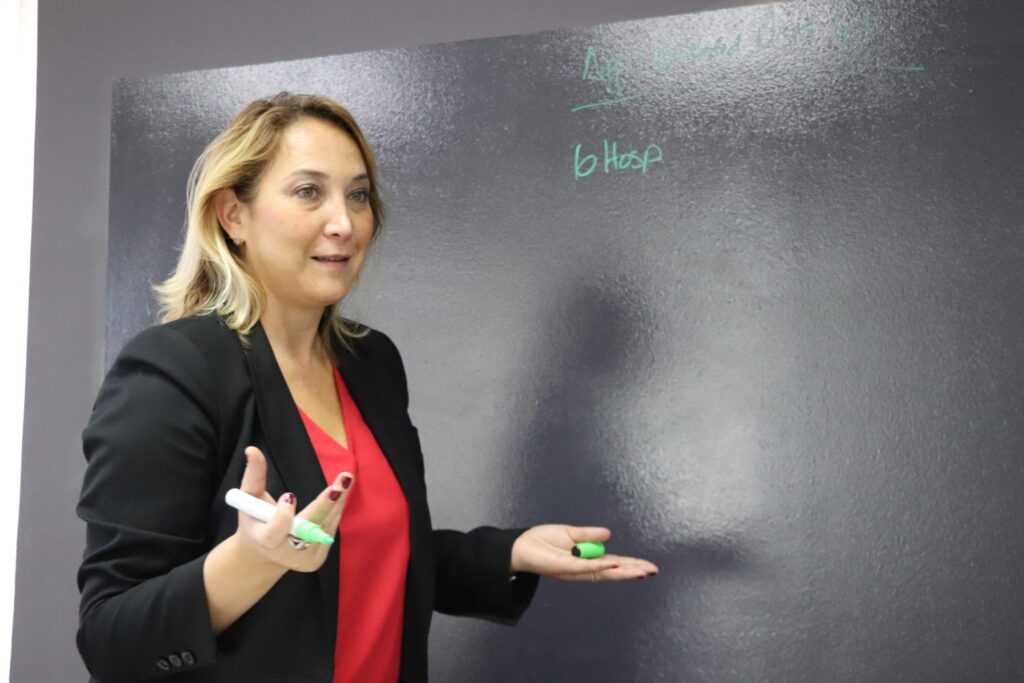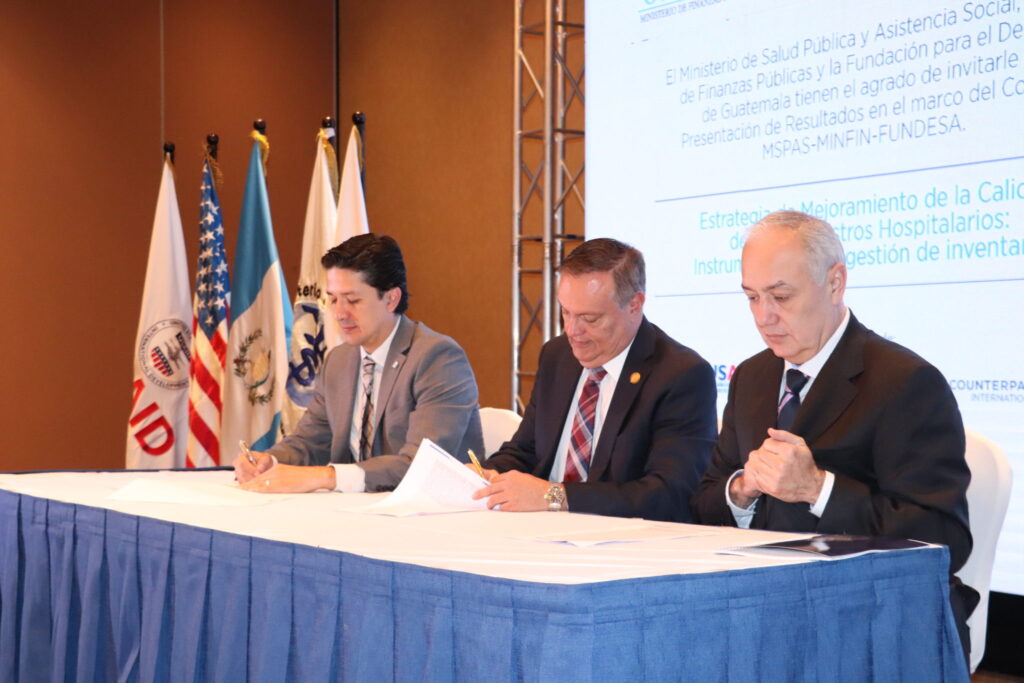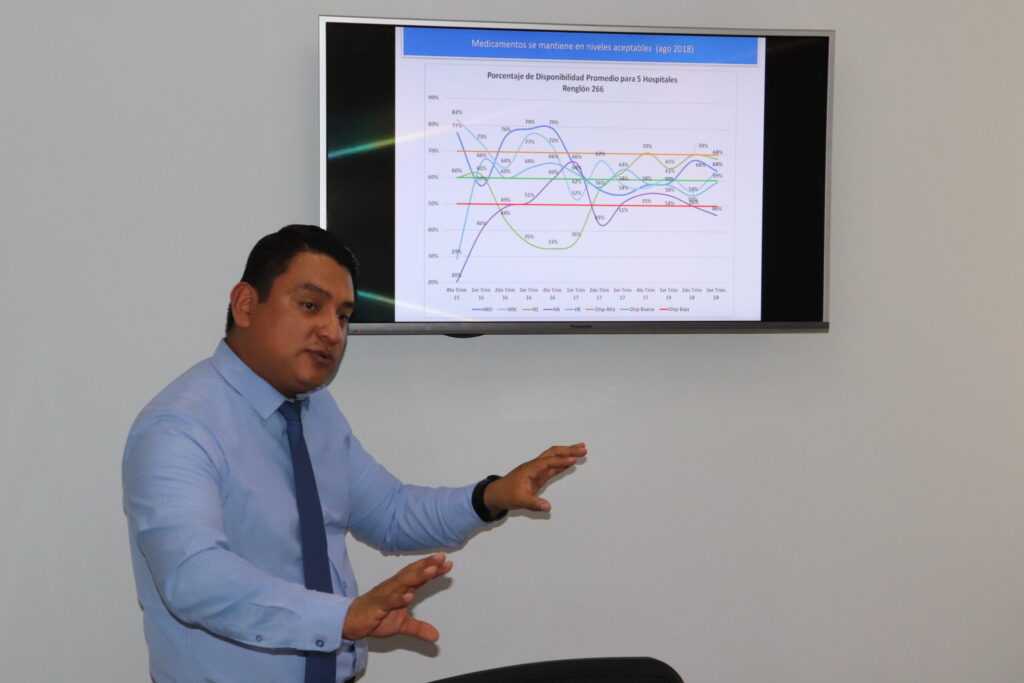Although access to health care is guaranteed in Guatemala’s constitution, the reality for many Guatemalans is that even the most basic public health services remain unreliable. Guatemala’s public hospitals have historically received minimal public or government oversight, and corruption and mismanagement are all too common. Recently, high-level hospital officials have been investigated for purchasing medicine above typical market prices and in unjustifiably large quantities. At the same time, critical supplies are often unavailable when people need them most. Hospitals waste millions of dollars each year on inefficient, labor-intensive inventory management, and patients requiring medical care are often turned away and directed to return later, when treatments will hopefully be available.
In May 2016, the government of Guatemala launched an initiative to provide a sustainable solution to the waste and inefficiency of the current system. The initiative – the result of an agreement between Guatemalan civil society organization FUNDESA and Guatemala’s Ministries of Finance (MINFIN) and Public Health and Social Assistance (MSPAS) – had two objectives: reduce the expense of procuring medicine and improve inventory efficiency in the two hospitals that serve the most patients.

Carmen Salguero, who executed the initiative for FUNDESA, discusses project design in a meeting with Counterpart staff.
FUNDESA (the Foundation for the Development of Guatemala) is a 35-year-old nonprofit organization formed by entrepreneurs to promote sustainable economic and social development in Guatemala. With its focus on integrated, long-term solutions and facilitating connections between the public and private sector, FUNDESA was an excellent fit to execute the initiative and an ideal partner for Counterpart’s Participación Cívica program in Guatemala.
FUNDESA began by evaluating procurement and inventory management practices to gain a clear understanding of the state of the current system. They observed a lack of data management or systematization; this disorder kept oversight at a minimum and encouraged corruption and waste. FUNDESA’s solution, designed in consultation with the hospitals, was a comprehensive database that tracks availability of critical medical supplies, provides up-to-date projections of procurement costs, and uses location-specific calculations to suggest optimal times to re-order supplies. The system is designed for simplicity: supply levels are color-coded, and inventory projections are updated on a per-hospital basis, ensuring that each hospital is prepared to meet the specific needs of the community it serves.
Counterpart is proud to have contributed to this tremendously important initiative through Participación Cívica, a project funded by the United States Agency for International Development. Participación Cívica provided funding to FUNDESA to support implementation and roll-out of the online procurement system. We also leveraged our in-country network of civil society organizations to provide service delivery oversight at the regional level.
After a hugely successful pilot phase at two hospitals, the system was quickly expanded to five additional hospitals. The seven hospitals now using the system have seen improvements across the board: availability of critical medications has increased from 40% to 80%, patient costs have been reduced by 25%, and the hospitals save over $10 million per year.

Victor Manuel Martínez Ruíz, Carlos Enrique Soto Menegazzo, and Juan Carlos Paíz sign an agreement to implement FUNDESA’s system in all 38 public hospitals in Guatemala.
Early in the morning of October 23rd, a conference room in Guatemala City buzzed with energy. Representatives from the government, members of local civil society organizations and international NGOs, journalists, researchers, and hospital administrators gathered to celebrate the initiative’s progress. High-level speakers lauded the value of the partnerships that have made this initiative so successful. Dr. Carlos Enrique Soto Menegazzo, the Minister of Public Health and Social Assistance, emphasized the importance of the public-private partnership, which ensures sustainability. Victor Manuel Martínez Ruíz, the Minister of Finance, observed, “We can’t do it alone … success requires a joint effort.”
The event also marked an exciting development: in light of the project’s success, the three parties signed a cooperative agreement committing to further implement the system in all 38 of Guatemala’s hospitals. This agreement will ensure that the reduction in waste and the improvements in patient care will now benefit all Guatemalans. Counterpart is proud to have supported this initiative, encouraged by FUNDESA’s success, and excited to see the continued improvement and expansion of public health services throughout Guatemala. As Juan Carlos Paíz, the president of FUNDESA, stated, “We can achieve great results as a team when we have a shared vision.”





